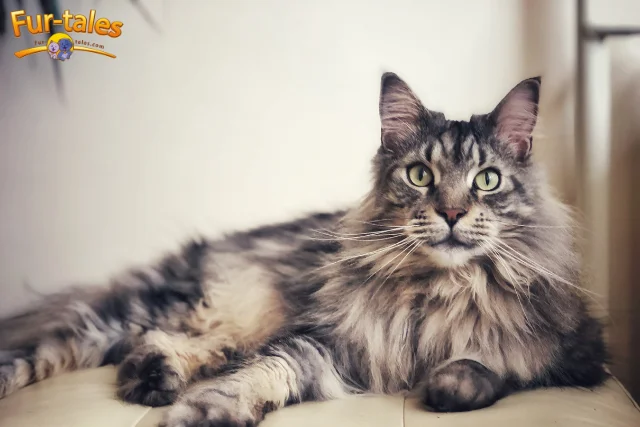
Most Affectionate Cat Breeds: Who Loves You the Most?
When you think of a loving pet, a dog might be the first animal that comes to mind. But cat lovers know the truth—many cats are incredibly affectionate and form strong, lifelong bonds with their humans. While every cat is unique, some breeds are especially known for their cuddly, loving nature. If you’re searching for a feline companion who’s likely to return your affection tenfold, this guide is for you.
In this article, we’ll explore the most affectionate cat breeds, what makes them so loving, and what you can expect when welcoming one into your home. We’ll also touch on helpful new pet owner tips, a pet health checklist, and how to prepare for your first vet visit.
1. Ragdoll
Why They’re Lovey-Dovey: Ragdolls are often described as “puppy-like” because they follow their owners from room to room and love being held. These blue-eyed beauties are calm, gentle, and thrive on human companionship.
Great For: Seniors, families, or anyone looking for a laid-back lap cat.
Pet Health Checklist: Keep up with regular brushing to avoid matting and schedule annual vet check-ups, as Ragdolls can be prone to heart conditions like hypertrophic cardiomyopathy.
2. Maine Coon
Why They’re Lovey-Dovey: Known as the gentle giants of the cat world, Maine Coons are affectionate without being overly needy. They enjoy spending time with people and often chirp and trill to communicate.
Great For: Pet lovers who want a big, sociable cat with a dog-like personality.
New Pet Owner Tips: Invest in a sturdy scratching post and regular grooming sessions. These cats have thick fur that needs attention.
3. Siamese
Why They’re Lovey-Dovey: Siamese cats are vocal, loyal, and deeply attached to their people. They’re not shy about showing affection and will demand attention if they feel left out.
Great For: People who enjoy interactive pets and don’t mind a chatty cat.
First Vet Visit Guide: Discuss the breed’s predisposition to dental issues and make sure your vet sets up a dental care plan.
4. Scottish Fold
Why They’re Lovey-Dovey: Famous for their folded ears and sweet expression, Scottish Folds are affectionate and love to be near their owners. They’re calm, quiet, and often prefer a cozy lap over exploring.
Great For: Seniors and individuals living in smaller homes or apartments.
Pet Health Checklist: Due to potential joint issues, regular checkups and a high-quality diet are essential.
5. Birman
Why They’re Lovey-Dovey: Birmans are social butterflies. They enjoy the company of humans and other pets and often greet their owners at the door.
Great For: Multi-pet households and families.
New Pet Owner Tips: Birmans adapt well but still appreciate a consistent routine. Provide plenty of toys and interaction.
6. Sphynx
Why They’re Lovey-Dovey: These hairless wonders are known for their warm skin and warmer personalities. Sphynx cats are outgoing, clingy (in the best way), and love snuggling for body heat.
Great For: Allergy sufferers and those who want a highly interactive pet.
Pet Health Checklist: Regular skin cleaning is a must. Also, they need clothing or blankets to stay warm in cooler months.
7. Tonkinese
Why They’re Lovey-Dovey: A blend of Burmese and Siamese traits, Tonkinese cats are affectionate, intelligent, and playful. They form tight bonds and will seek out your lap or shoulder to be close.
Great For: Active households or individuals seeking an intelligent, friendly companion.
First Vet Visit Guide: Ask your vet about any breed-specific vaccinations or concerns, especially genetic ones.
8. Burmese
Why They’re Lovey-Dovey: These cats are affectionate, loyal, and love physical contact. Many Burmese cats enjoy being carried around or sleeping under the covers with their humans.
Great For: Anyone who wants a cuddle buddy with a playful streak.
Pet Health Checklist: Burmese are generally healthy but should be monitored for obesity due to their hearty appetites.
9. Exotic Shorthair
Why They’re Lovey-Dovey: Known as the short-haired version of the Persian, Exotic Shorthairs are gentle, affectionate, and low-energy. They love snuggling and have an easygoing temperament.
Great For: Apartment dwellers or those looking for a low-maintenance lovebug.
New Pet Owner Tips: Wipe their eyes daily to prevent tear staining and check for any respiratory issues.
10. Devon Rex
Why They’re Lovey-Dovey: With their large ears and mischievous expressions, Devon Rex cats are known for their affection and need for attention. They’ll follow you everywhere and even ride on your shoulders.
Great For: Fun-loving owners who enjoy a quirky, loving cat.
First Vet Visit Guide: Talk to your vet about their sensitive skin and need for occasional baths.
Choosing the Right Breed for You
While breed can be a good predictor of behavior, individual personality and upbringing also play a big role. Spend time with different cats before making a decision, and always adopt from reputable breeders or shelters.
FAQs: Most Affectionate Cat Breeds
Q: Are some cat breeds more affectionate than others? A: Yes! While all cats are individuals, certain breeds—like Ragdoll, Maine Coon, and Siamese—are generally known for being more affectionate.
Q: How can I make my cat more affectionate? A: Consistent interaction, positive reinforcement, and respecting your cat’s boundaries can encourage affectionate behavior over time.
Q: What’s a good cat breed for seniors? A: Breeds like Scottish Fold, Exotic Shorthair, and Ragdoll are often recommended for seniors due to their calm and loving nature.
Q: Are affectionate cats high-maintenance? A: Not necessarily. Some affectionate breeds, like Exotic Shorthairs, are low-energy and easy to care for. However, others like the Sphynx or Devon Rex may require special grooming.
Q: Should I consider health issues when choosing a breed? A: Absolutely. Every breed has unique health needs, so be sure to consult a vet and follow a thorough pet health checklist.
Image Designed Using Canva
